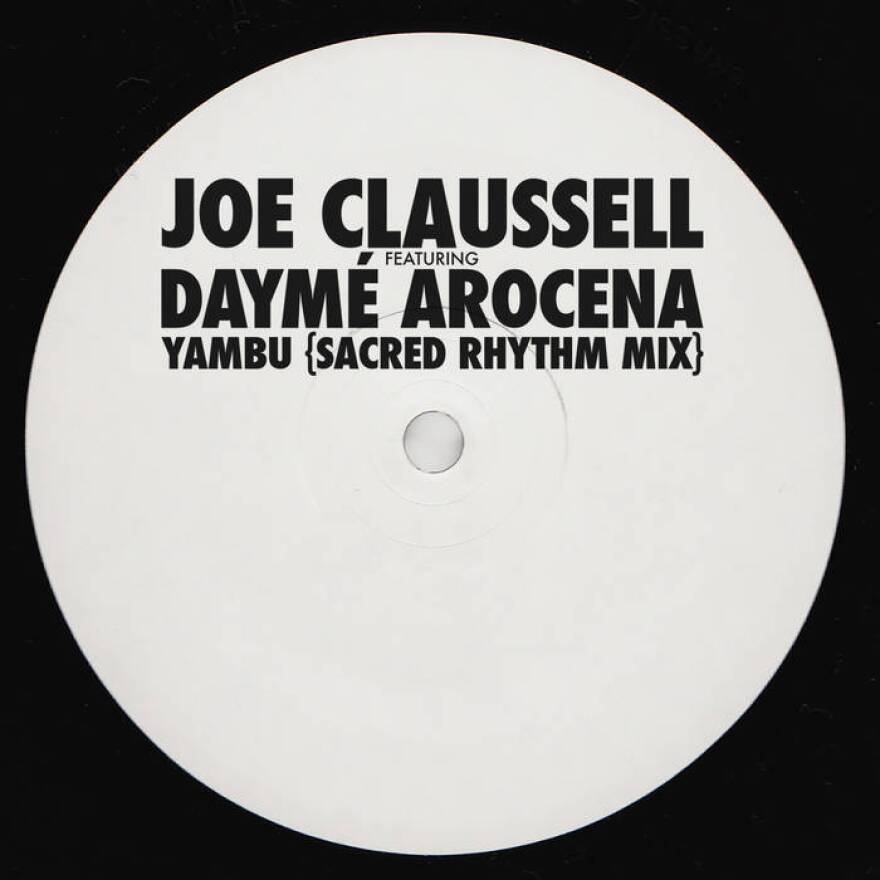Take Five kicks off 2018 in high style, with music that stretches forward.
Henry Threadgill 14 or 15 Kestra: Agg, “Dirt - Part III”
Close observers of the avant-garde perked up last week, when the Pulitzer Prize-winning composer and multi-reedist Henry Threadgill announced the existence of a new album, Dirt... And More Dirt. Credited to an improvising chamber ensemble he calls 14 or 15 Kestra: Agg, the album was posted to Bandcamp, with an official release scheduled for late spring on Pi Recordings, which also plans to issue an album by Threadgill’s Double Up Plus.

As its title obliquely implies, Dirt... And More Dirt divides into two suites, the first called “Dirt” and the second “And More Dirt.” (Threadgill’s predilection for what the scholar Brent Hayes Edwards calls “titular antics” is in full effect here.) The orchestration, for a group of 15 pieces, reflects what has become a signature deployment of slanted crosstalk and shifting counterpoint. “Dirt – Part III” embodies this approach while setting the stage for several compelling soloists: first Curtis Robert Macdonald on alto saxophone, then Jacob Garchik on trombone, and finally Román Filiú on alto saxophone again. Hang tight for the track’s conclusion, which weaves multiple strands into a deft and tricky fabric.
Alicia Hall Moran, “Feeling Good”
Another brilliant album that hit Bandcamp near the close of the year is Here Today, by the free-thinking mezzo-soprano Alicia Hall Moran. A blend of original songs and reimagined fare from the modern American songbook, it’s a hybridist manifesto, refusing to conform to anyone’s notions about the proper setting for a trained voice, or the divisions between vernacular and formal song.

“Feeling Good” is one of the more familiar entries on the album — a declaration indelibly associated with Nina Simone, who https://youtu.be/3O1X19EdvRg">recorded it in 1965. Moran brings a kind of phase-shifting call-and-response to the song, with multi-tracked vocals set against a whisper of piano and strings. The pianist is her husband, Jason Moran, who delivers a faint soulful rumble, underscoring the gospel tonalities in her performance. Other tracks on the album feature the band Harriet Tubman, which creates a hazier color field for her singing. But this one, in its bittersweet uplift, is a standout.
Jure Pukl, “Doubtless”
Here’s the frisky title track of an album that should have received a bit more attention in 2017. Jure Pukl is a tenor saxophonist originally from Slovenia, where he recently won the nation’s highest award for contribution to arts. He designed Doubtless as a statement for pianoless quartet, with his wife and fellow tenorist, Melissa Aldana, joining him in the frontline. This track reveals the extent of their telepathy as improvisers: it’s easy to lose track of who’s playing what, at any given point in the song. And their partners in the band, bassist Joe Sanders and drummer Gregory Hutchinson, hardly hang back as a rhythm section. The track presents a moving portrait of active engagement, a perpetual motion machine.
Joe Claussell feat. Daymé Arocena, “Yambú (Sacred Rhythm Mix)”
If you’ve been watching this space, you’re familiar with Daymé Arocena, the Cuban vocal dynamo who released a commanding third album, Cubafonía, on Brownswood Recording last year. Arocena appeared on Jazz Night in America, and then again in Toast of the Nation. If you’ve ever seen her in performance, you know why she’s in such high demand.

“Yambú (Sacred Rhythm Mix)” is a club track by Joe Claussell, the veteran New York producer and DJ. Featuring a four-on-the-floor beat crosscut with congas and Batá drums, it’s a remix of a track that can be found on Japanese versions of Cubafonía. Arocena’s voice floats over the churn, but she doesn’t sound disembodied from Claussell’s beat. Settle in for the full nine-minute track, which technically releases on Jan. 19, and you’ll experience the episodic approach he applies, framing her vocal refrain with all manner of rhythmic digression.
Terry Adams and Friends, “Poochie & the Bird”
Since the death of trombonist Roswell Rudd over the holidays, I’ve spent a lot of time revisiting his music, finding endless affirmation there. Another discovery was this clip, from the birthday tribute held in November at Dizzy’s Club Coca-Cola. The featured guest during this part of the program was Terry Adams, the pianist best known as a founding member of NRBQ. Introduced by slide trumpeter Steven Bernstein, Adams warms up with a Thelonious Monk tune, “Pannonica,” backed by Mark Helias on bass and Kenny Wollesen on drums. Then, just after the four-minute mark, they’re joined by Bernstein, saxophonist Briggan Krauss and trombonist Art Baron for a rollick through “Poochie & the Bird,” a Rudd original from El Espíritu Jíbaro, the album he made with Puerto Rican cuatro player Yomo Toro. The performance is jubilant, with just a touch of unruliness, and I can only imagine that Rudd was smiling from his seat in the crowd.



